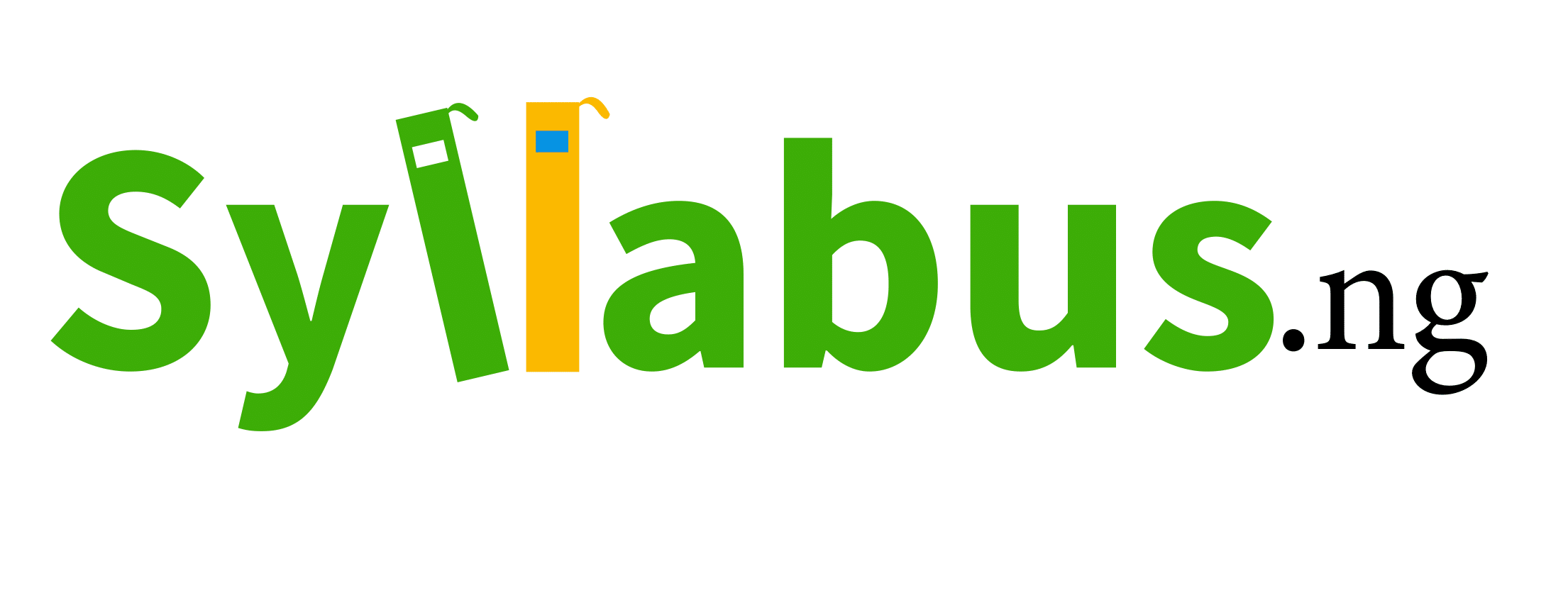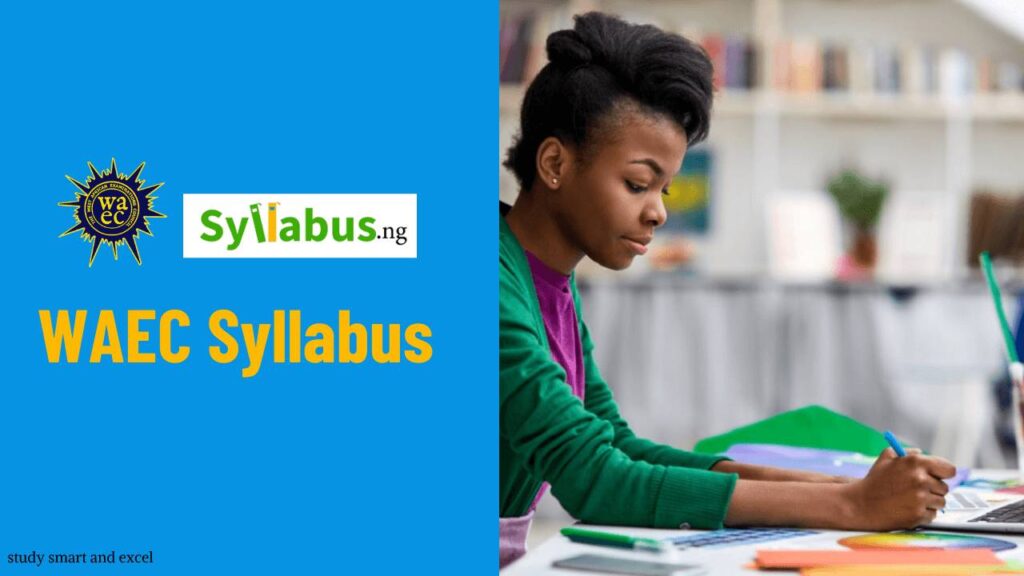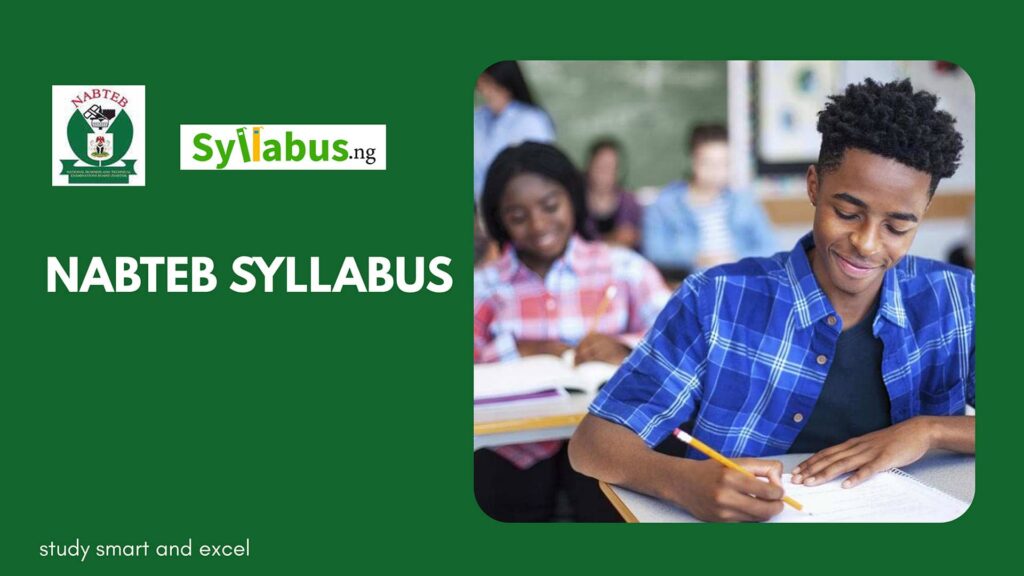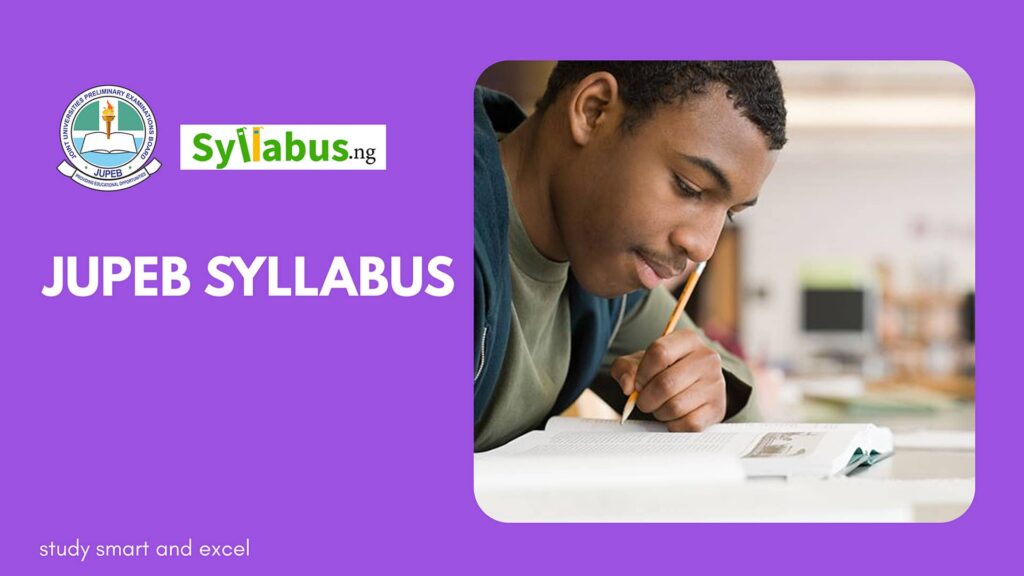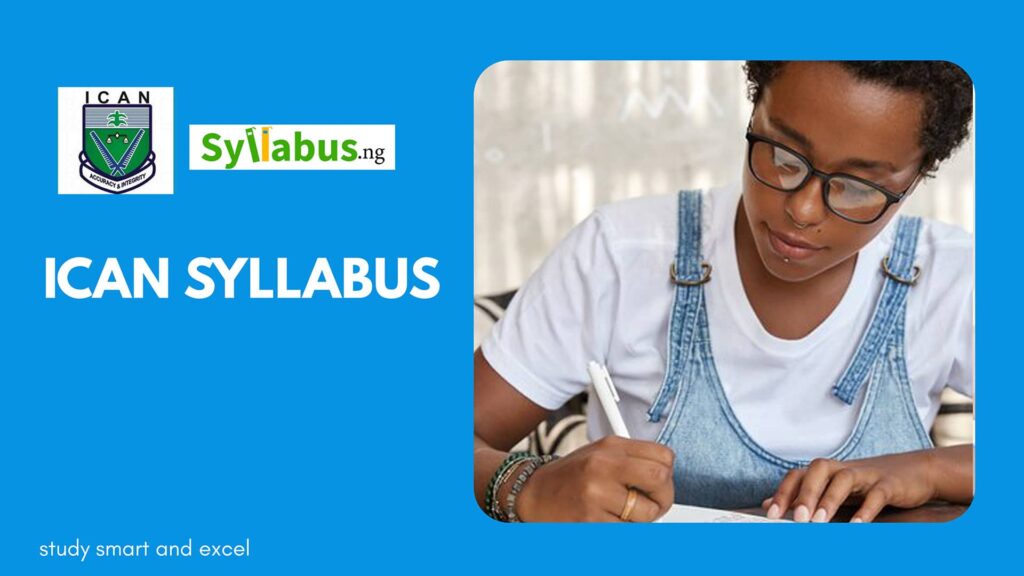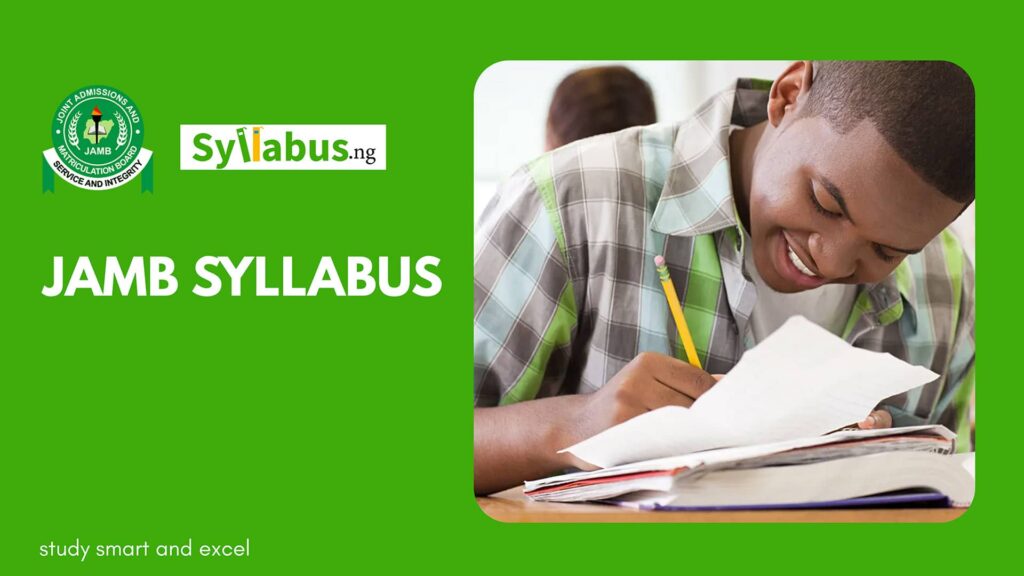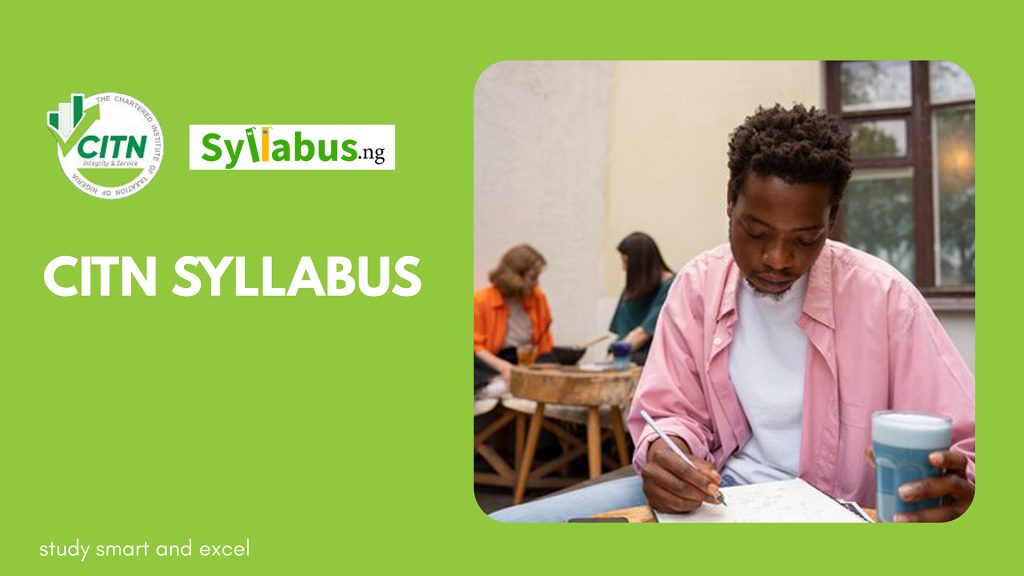TRCN Syllabus
Get all Teachers Registration Council of Nigeria (TRCN) certification exam syllabus for call categories.

Home » TRCN Exam: Syllabus, Registration & Other Info
Home » TRCN Exam: Syllabus, Registration & Other InfoHistory of TRCN
Teachers Registration Council of Nigeria, TRCN is an agency of the Federal Ministry of Education of Nigeria. It was established by the TRCN Decree N0. 31 of 1993 (now TRCN Act CAP T3 of 2004). It was established primarily to regulate the teaching profession in Nigeria, ensuring that only qualified and certified individuals are allowed to practice as teachers.
In 2008, over 50,000 teachers who applied for registration were made to write the first ever professional qualifying examinations in Nigeria, and about 50% (25,000) of the teachers who wrote the examination passed while another 50% (25,000 teachers) failed. Only those who passed the examination were registered. The success of the 2008 “experiment” paved the way to the development of the Teachers Professional Qualification Examination Benchmark, which has now become a reality.
Today, TRCN plays a pivotal role in the Nigerian education system, contributing to the improvement of teaching quality, teacher professionalism, and ultimately, the overall standard of education in the country.
TRCN Exam Categories
In Nigeria, numerous established standards support the idea that academic qualifications are crucial in evaluating teachers. These academic and administrative norms in Nigeria reflect the notion that teachers’ competence can be assessed based on their educational credentials and professional backgrounds. Taking these factors into account, TRCN (2005) categorized teachers into four distinct groups.
Categories of teachers in Nigeria.
A = PhD in Education or PhD in other fields plus a teaching qualification such as NCEPGDE, PDE, or PDDE |
B = Masters Degree in Education or Master Degree in other fields plus a teaching qualification such as PGDE, PDE or PDDE. |
C = Bachelor’s Degree in Education or Bachelor’s Degree/HND in other fields plus a teaching qualification such as PGDE, PDE or PDDE. |
D = Nigeria Certificate in Education and 3-Year Diploma in Education Programme approved by TRCN for Colleges of Arabic and Islamic Studies or Christian Theological Colleges. |
TRCN Exam Fees
The table below shows the exam registration for the TRCN, and the amount required of you to pay as annual dues.
Category of teachers | Registration fee (Naira) | Annual dues (Naira) |
A = PhD in Education or PhD in other fields plus a teaching qualification such as NCEPGDE, PDE, or PDDE. | 8,000 | 10,000 |
B = Master Degree in Education or Master Degree in other fields plus a teaching qualification such as PGDE, PDE or PDDE. | 7,000 | 8,000 |
C = Bachelors Degree in Education or Bachelors Degree/HND in other fields plus a teaching qualification such as PGDE, PDE or PDDE. | 6,000 | 6,000 |
D = Nigeria Certificate in Education and 3- Year Diploma in Education Programme approved by TRCN for Colleges of Arabic and Islamic Studies or Christian Theological Colleges | 5,000 | 4,000 |
The TRCN Professional Qualifying Examination (PQE) is an evaluation strategy that comes after pre-service education of an intending professional which is aimed at determining the level of competencies of the individual. The evaluation is a kind of “checks and balances” organized by the Teachers Registration Council of Nigeria (TRCN) to independently ascertain to what extent the individual has accomplished laid down benchmarks for admission into the teaching profession.
Successfully passing the PQE demonstrates a teacher’s readiness to positively impact the Nigerian education system and uphold the standards set by the TRCN. Aspiring teachers embark on this journey to not only certify their skills but also contribute to the enhancement of teaching quality in Nigeria.
Download Recommended TRCN Exam Syllabus
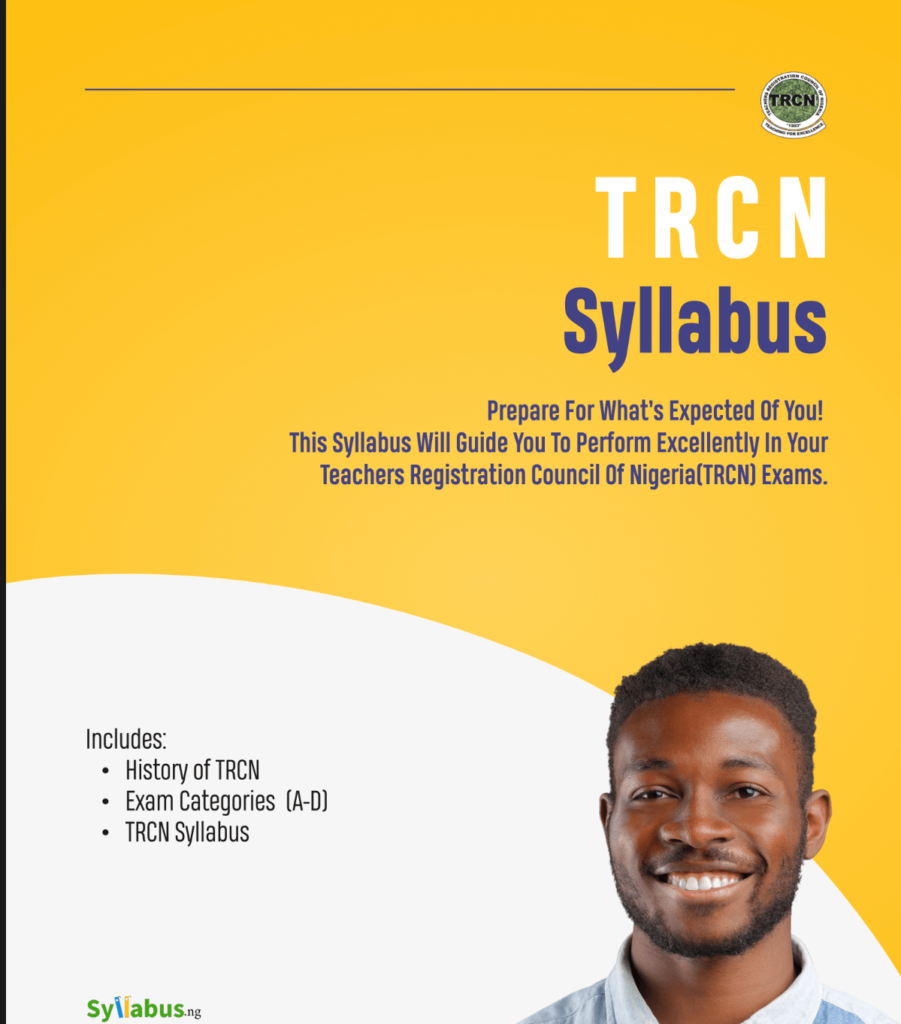
Excelling your TRCN PQE exams starts from knowing what’s expected of you.
Don’t be left behind. Download the Syllabus today.
TRCN Syllabus For Each Level
TRCN Professional Qualifying Exam Courses
The TRCN PQE comprises twenty-three (23) courses. They are:
| PQE 001 | History of Education |
| PQE 002 | Philosophy of Education |
| PQE 003 | Sociology of Education |
| PQE 004 | Educational Psychology: Child, Adolescence & Adult Psychology; Human Learning |
| PQE 005 | Guidance & Counseling: Theory & Practice |
| PQE 006 | The Teaching Profession |
| PQE 007 | Teacher Education |
| PQE 008 | Classroom Management & School Organisation |
| PQE 009 | Educational Technology/Information and Communication Technology in Education |
| PQE 010 | Subject Methodology |
| PQE 011 | Theory and Practice of Child-Friendly Schools (CFS) |
| PQE 012 | Curriculum Studies |
| PQE 013 | Measurement and Evaluation |
| PQE 014 | Educational Management |
| PQE 015 | Special Education |
| PQE 016 | Education of Special Target Groups/Adult Education |
| PQE 017 | Comparative Education |
| PQE 018 | Educational Statistics |
| PQE 019 | Educational Research Methods |
| PQE 020 | English Language & Communication Skills |
| PQE 021 | Use of the Library |
| PQE 022 | Basic Mathematics |
| PQE 023 | Micro Teaching Theory |
CATEGORY A - TRCN Syllabus for PhD Holders in Education or PhD in other fields
| Requirements | TRCN Syllabus for Phd Teachers | ||
| PhD in Education or PhD in other fields plus a teaching qualification such as NCE,PGDE, PDE, or PDDE. | |||
| Course Code | Course Name | Theme | Note |
| PQE 001 | History of Education | History of Western, traditional and Islamic Education in Nigeria and their impact on present system of Education in Nigeria | Educational development in Nigeria with emphasis on the evolution of current educational policies and practices. Traditional, Islamic and modern systems of education in Nigeria. The role of educational supervisory commissions in policy making. The National Policy on Education and the Nigerian Constitution. Appraising Nigeria‟s general educational challenges and proposing remedies in the context of historical lessons and experiences of Nigeria and other countries. |
| PQE 002 | Philosophy of Education | Philosophical Thought that influenced Educational development and practices around the world and in Nigeria. | Basic philosophical thoughts in education. Educational ideas and practices from ancient times and their influence on modern practices. Philosophical thoughts underlying Nigerian education. Appraising Nigeria‟s general educational challenges and proposing remedies in the context plausible philosophical thought around the world and Nigeria. |
| PQE 003 | Sociology of Education | Sociological foundations of education; influence of sociological factors on Nigerian education and the transformation of society through education. Emerging issues– Gender, Security, Outof- School, Family Life, Albinism, Child Trafficking, etc. | Basic concepts of sociology. Nature of society, primary and secondary groups in society, ethnic groups, minority groups. Education and social change. The teacher’s role in society. The school as a social organisation. Features of industrial and non industrial societies and their influence on education. |
| PQE 004 | Educational Psychology: Child, Adolescence & Adult Psychology; Human Learning | Human Development and Human Learning | Theories of learning; their classroom implications on various Educational practices. Developmental stages in childhood, adolescence and adulthood. Interaction processes within the environment and the influence of this on intellectual, social and Learning how to learn; barriers to study; identification of students reactions to barriers to study; remedies to barriers to study; preparation and use of check sheets for instruction; management of a material- based instruction. Communication skills for teachers emotional development. |
| PQE 005 | Guidance & Counseling: Theory & Practice | Administration and organisation of Guidance services | Rationale, scope and nature of Guidance and Counseling services in educational and community settings. Multiple approaches of such services with emphasis on role of counselors in needs assessment programme planning, consultation and coordination of services for diverse populations. Study of problems, issues, trends and ethical responsibility in the field of Guidance and Counseling. Principles and methods of developing and administering guidance programmes in the school setting – at the primary, secondary and tertiary levels. Practical programmes and issues in Nigeria, e.g. problems connected with testing programmes, interpersonal relationships, finance, etc. |
| PQE 006 | The Teaching Profession | Provisions of the TRCN Act CAP T3 and TRCN mandates, programmes, successes, challenges and way forward. Roles of subject the TRCN Act CAP T3 and TRCN mandates, programmes, successes, challenges and way forward. Roles of subject and professional associations in the development of the teaching profession. | Historical development of teaching as a profession in Nigeria. Provisions of the TRCN Act 31 of 1993. Activities, programmes and policies of TRCN especially in the areas of i. Registration and licensing of teachers ii. Mandatory continuing professional education. iii. Induction and internship schemes. iv. Control of professional misconduct, incompetence and negligence. v. Accreditation, monitoring and supervision of teacher education programmes. Etc. Review of TRCN basic publications – Teachers Code of Conduct, Nigerian Journal of Professional Teachers, etc. Comparisons of the regulation of teaching in Nigeria and abroad. Comparisons of the regulation of teaching and other professions in Nigeria. Successes, challenges and strategies for the advancement of the teaching profession in Nigeria. |
| PQE 007 | Teacher Education | Teacher education issues and strategies for improvement; Trends in Teacher Education | Concepts, aims and objectives of tertiary teacher education; roles of the teacher in the school and as a member of a population group in Nigeria; Teacher education issues, problems and strategies for improvement. |
| PQE 008 | Classroom Management & School Organisation | Effective management of classrooms and schools; Management of learner and school records. | Concept of classroom management and organisation – class organisation, classroom leadership, classroom arrangement, class control, class discipline, etc; concept and essence of school public relations; factors influencing school-public relations; staff-management relations; student-staff relations; parent-staff relations; school environment; school programme; school performance; school tone. |
| PQE 009 | Educational Technology/Information and Communication Technology in Education | Appreciation, design, process, application and effects of techniques in the teaching/learning situation. Integration of ICT in teaching and learning process. Other new technologies. | Meaning, value, varieties and uses of Educational Technology. AudioVisual materials, school broadcasting and ICT applications in Education. Selection of appropriate aids for specific lessons. Evaluation of effects of teaching aids on lesson effectiveness. Introduction to Information and Communication Technology. The role of ICT in Education. Computer appreciation. Computer operations –Typing skills. Computer operations – MS Word, Excel, Power Point, Publisher, etc. ICT tools for Education– Use of emails, internet, virtual library, etc. One computer programme along with current ICT concepts and operations. Use of the internet – browsing, searching, mailing, social media, etc. |
| PQE 010. | Subject Methodology | Principles and Theories of teaching specific subject matter areas. Current trends in subject methodology. Improvisation; Open and Distance Learning (ODL) | Course ware development for higher education. Designing new courses for higher education, writing course objectives, basic steps in course ware, development of courses for online learning. The aims and objectives of teaching specific subjects. Approaches to the teaching of the subjects. Selection and evaluation of materials and resources for teaching. Implementation of curriculum. Teaching and examination of syllabi. Preparation of course description and outlines. Benchmark considerations. Elearning planning. Peer teaching. A survey of curricular in relevant disciplines. Analysis of examination syllabi. Practice in test construction. Selection, evaluation, and preparation of materials and resources for teaching. |
| PQE 011. | Theory and Practice of Child-Friendly Schools (CFS) | Creating enabling environment for teaching and learning in Nigeria. | Concept, principles and models of CFS – definition of CFS, Key generic principles of CFS based on the Convention on the Rights of the Child, child-centredness democratic participation, inclusiveness; quality as holistic and multi-dimensional; characteristics of CFS – Principle 1 (child rights and inclusive education), Principle 2 (effective teaching and learning environments), Principle 3 (safe supportive and protective learning environments), Principle 4 (healthy and health-seeking learning environments), Principle 5 (gender sensitive learning environments), Principle 6 (democratic participation and partnership building); Policies in Nigeria that promote CFS; Child friendly school standards and indicators for teacher education; teacher preparation for CFS – child centred interactive methodologies based on constructivist principles and activity based learner centred approach; facilities and resources required for CFS; Assessment of teaching in a CFS; Technology on a CFS learning and teaching; strategies for mainstreaming CFS concepts and principles in Nigeria. |
| PQE 012 | Curriculum Studies | Curriculum development and implementation | Models of curriculum development and design; organisation, selection and evaluation of curriculum. Principles of supervision, visitation, and accreditation. Preparation of relevant reports. |
| PQE 013 | Measurement and Evaluation | Test construction, administration, analysis & interpretation. | Concepts of measurement and evaluation in education. Types and uses of tests. Statistical methods in testing. The characteristics of good test – validity, reliability and usability. Measurement and evaluation at tertiary education level, e.g. computation and analysis of students results such as goodstranding, GPA, CGPA, weighted average, weighted score/point, and classification of students performance. Computer based testing, online presentation of students results, etc.. |
| PQE 014 | Educational Management | Management of educational programmes, institutions, personnel and other resources. Quality Assurance concepts, processes and types. | Theories and principles of educational management. History of Educational planning and management. Types of planning; Manpower and social demand, rate of returns, conditions for success in educational planning and management. Problems and issues in educational management in Nigeria. Staff recruitment:- selection, utilization and incentive policies. Enrolment, administration and student welfare programmes. Staffstudent relationship. Analysis of education statistics. National, state and local government budgets in relation to education. Government and private financing of primary, secondary, tertiary institutions and non-formal education. Principles and practice in school budgeting, wages and salary administration. A holistic approach to study and understanding of man emphasizing techniques of self analysis. Social Skill training and techniques of communication. Interpersonal relationships, conflict situations and resolutions. MDGS in Education; concept of Education For All (EFA), New Partnership for African Development (NEPAD), National Economic Empowerment and Development Strategy (NEEDS), HIV/Aids in Education, PublicPrivate Partnership Initiative in Education. The role of NGOs and other agencies in education. |
| PQE 015 | Special Education | Strategies for enhancement of education of persons with special needs. | Basic concepts and principles in special education. Recognition of students with special needs. Curriculum and instructional needs of gifted and physically challenged students. |
| PQE 016 | Education of Special Target Groups/Adult Education | Strategies for education special target groups | Introduction to adult education. A survey of the purpose and scope of adult education. The psychology and characteristics of adult learners. Community development, lifelong learning, distance learning, non-formal education, functional literacy, continuing education and mass literacy education. Methods of teaching adults. Non-formal education in Nigeria. The role of adult education in the development of Nigeria |
| PQE 017 | Comparative Education | Comparing Nigerian education system with the education systems in other countries and drawing from the best practices.. | Meaning and scope of comparative education. Methods appropriate to its study. The relationship between the state and education. Factors that influence the character of any educational system. Aspects of systems of education from Nigeria. 1-6-3-3-4 Education system in Nigeria: principles, Guidelines and implementation. EFA and the MDGs in education. Education in other countries of the world (a study of good programmes in selected countries in Africa, Asia, America and Europe); Post 2015 Development Agenda. |
| PQE 018 | Educational Statistics | Statistical foundations for educational research and measurements. | Basic statistical methods in Education. Hypothesis formulation and testing. Nonparametric analysis. Analysis of variance and covariance in educational experiments. Regression analysis, correlation and other measures of association. Use of ICT tools in data analysis. |
| PQE 019 | Educational Research Methods | Identification of educational problems, research design, data gathering, processing, analyzing, interpreting, inferences and reporting | Definition of a problem and formulation of hypotheses. Research types in education, e.g. historical, survey, experimental, etc. Proposal writing for theses and grants. Data gathering tools in education. Data analysis techniques in educational research. Research reporting |
| PQE 020 | English Language & Communication Skills | Use of effective communication skills and fluency in English language teaching and learning situations and day-to-day interaction… | Nature and Importance of Classroom Communication. Types of language problems among learners and strategies for improvement. Grammar: Parts of speech (nouns, pronouns, verbs, adverbs, adjectives, prepositions, etc); verb tenses, agreement/concord, auxiliary/models, questions, statements, commands; phrases, clauses, sentence types and patterns; direct and indirect speech, common errors; etc. Writing: Punctuation, outlining, logical presentation of ideas; paragraphing/structure/development, logical sequencing of paragraphs; compositions – narrative, descriptive, argumentative, explanatory, letter writing formal/informal; report writing, memos, speeches, minutes; writing styles – inductive/deductive, generalizations, etc. Reading: Reading problems; principles and techniques for effective reading; reading for various purposes (research, inferences, pleasure, scanning for key ideas, etc); creative reading; etc. Listening: Listening types; listening defects; strategies for effective listening |
| PQE 021 | Use of the Library | Effective use of the library for academic and educational research purposes; The concept and use of virtual library | Examination of the nature and operations of specific Library services. Bibliographic searching. Objectives, characteristics and operations of the elibrary. Online search of materials and information on the various educational disciplines. |
| PQE 022 | Basic Mathematics | Application of basic mathematics in teaching and learning and day-to-day living | Binary numbers, conversion from base 2 to base 10 and vice versa; sets definition, notation and diagrams; basic operations on factional and whole numbers; Fractions, decimals, and approximations; indices and surds; graphs; change of subject of formulae. Expansion and factorization of simple algebraic expressions; simple algebraic equations and methods of solutions; simple word problems; ratios, percentages, simple and compound interests; variations (direct and inverse). Units of measurement for money, length, mass, weight, area, volumes; calculations of areas and volumes of 2 and 3 dimensional shapes e.g. triangle, square, rectangles, cylinder. Properties and classification of 2 and 3 dimensional shapes; types of angles, horizontal, vertical, parallel and perpendicular lines; representation of data – pictogram, bar and pie charts. Frequency distribution – histogram and cumulative frequency distribution; mode, median and mean; range, mean deviation, and standard deviation; simple probability and application |
| PQE 023 | Micro Teaching Theory | Principles and practices of functional micro teaching; Peer teaching | Origin, development, meaning, aim and scope of micro-teaching. Basic principles and phases. Components of micro-teaching and their values. Techniques/skills of micro-teaching. Functions of the student in a micro-teaching situation as a teacher, a learner, a source of feedback, an evaluator, a video operator, and an organiser of a micro-lesson session. The use of the micro-teaching laboratory. Merits and demerits of micro-teaching. Sessions of supervised micro-teaching |
CATEGORY B - TRCN Syllabus for Master Degree Holders in Education or Master Degree in other fields.
| CATEGORY B | TRCN Syllabus for MSc Holders | ||
| Requirements | Master Degree in Education or Master Degree in other fields plus a teaching qualification such as PGDE, PDE or PDDE. | ||
| Course code | Course name | Theme | Note |
| PQE 001 | History of Education | History of Western, traditional and Islamic Education in Nigeria and their impact on present system of Education in Nigeria | A survey of education history from the ancient time to date; Ancient Western and traditional African education systems; Global contemporary education practices; History of Education in Nigeria; Significant landmarks in the emergence, development and growth of higher education in Nigeria. |
| PQE 002 | Philosophy of Education | Philosophical Thought that influenced Educational development and practices around the world and in Nigeria. | Nature of philosophy and nature of education; The essence of philosophy of education; An examination of philosophical ideas that have influenced the development of education throughout the world; Schools of Philosophical thought such as idealism, realism, naturalism and pragmatism and their contributions to educational development; Issues arising from the philosophy of Nigerian education with due regard to concepts such as: education, equality and opportunity, democracy, aims and objectives of education, reward and punishment, teaching, indoctrination and training, nature of knowledge, values and the individual; Ancient and contemporary philosophers; Their impacts on education systems and usefulness in the classroom environment; The curriculum and philosophy; The problem of truth; Transfer and application of knowledge. |
| PQE 003 | Sociology of Education | Sociological foundations of education; influence of sociological factors on Nigerian education and the transformation of society through education. Emerging issues – Gender, Security, Outof- School, Family Life, Albinism, Child Trafficking, etc. | The nature of society; The concept of society as a community; Groups and grouping in society; Institutions in society and their functions: economic, political, religious, educational etc; Cultural similarities and variations, social stratification, social change; The functions of education, and the school as a social institution in society; The relationship between the school and other social institutions such as family, religion, culture, language, economy and political system. |
| PQE 004 | Educational Psychology: Child, Adolescence & Adult Psychology; Human Learning | Human Development and Human Learning | An introduction to educational psychology. Development from conception to young adulthood. The intellectual, social, moral and emotional needs of learners. The needs of special learners. Perception of people and attribution of causes; self-concept; attitudes and behaviour; Power, authority and civil rights. Psychology of learning and cognition, psychological therapies in the school, childhood psychopathology. Individual differences in intelligence and learning styles. Cognitive and behavioural approaches to teaching and learning. Higher cognitive skills in learning and motivation. |
| PQE 005 | Guidance & Counseling: Theory & Practice | Administration and organisation of Guidance services. | TO BE CAT B The history, development and trends in Guidance and Counselling. C General principles, techniques and essential components of guidance and counselling. C The relevance of guidance and counselling to the National Policy on Education. C Multicultural aspects of counselling. Assessment in Counselling. Ethical issues and therapeutic processes in relation to unemployment, career choice, abuse, peer influence, sexuality, social relations, drug abuse etc. |
| PQE 006 | The Teaching Profession | Provisions of the TRCN Act CAP T3 and TRCN mandates, programmes, successes, challenges and way forward Roles of subject and professional associations in the development of the teaching profession. | Historical development of teaching as a profession in Nigeria. Provisions of the TRCN Act 31 of 1993. Activities, programmes and policies of TRCN especially in the areas of i. Registration and licensing of teachers ii. Mandatory continuing professional education. iii. Induction and internship schemes. iv. Control of professional misconduct, incompetence and negligence. v. Accreditation, monitoring and supervision of teacher education programmes. Etc. Review of TRCN basic publications – Teachers Code of Conduct, Nigerian Journal of Professional Teachers, etc. Comparisons of the regulation of teaching in Nigeria and abroad. Comparisons of the regulation of teaching and other professions in Nigeria. Successes, challenges and strategies for the advancement of the teaching profession in Nigeria.B |
| PQE 007 | Teacher education | Teacher education issues and strategies for improvement; Trends in Teacher Education | Concepts, aims and objectives of secondary and tertiary teacher education; roles of the teacher in the school and as a member of a population group in Nigeria; Teacher education issues, problems and strategies for improvement. |
| PQE 008 | Classroom Management & School Organisation | Effective management of classrooms and schools; Management of learner and school records | Concept of classroom management and organisation – class organisation, classroom leadership, classroom arrangement, class control, class discipline, etc; concept and essence of school public relations; factors influencing school-public relations; staff-management relations; student-staff relations; parent-staff relations; school environment; school programme; school performance; school tone. |
| PQE 009 | Educational Technology/Information and Communication Technology in Education | Appreciation, design, process, application and effects of techniques in the teaching/learning situation. Integration of ICT in teaching and learning process. Other new technologies. | Approaches to solving instructional problems; The meaning/definition, principles and evolution of educational technology concepts as well as their applications to all aspects of the education curriculum and instructional process; Educational media: meaning, selection, design, production, evaluation and utilization; Students‟ practical activities; Nature and Roles of Instructional technology; Instructional technology in learning; The basic teaching techniques, some related principles; A systematic approach to media; Introduction to material and media visual aids – Nonprojected aids: book and printed materials; Real things; Field trips; Models and mock-up simulation and games; Graphic symbols; Use of Instructional resources -Bulleting boards, exhibits, chalk boards, chart pads, flannel boards, Study prints, pictures, projected aids, record players, tape recorders, etc; Principles of projection – Over-head projectors, filmstrip projectors, slide projectors, opaque projectors, motion pictures projectors; Hints for good showmanship; Multimedia and multi-image presentations; Aural aids. xix. Microprojector; Radio; Audio-visual aids. Introduction to Information and Communication Technology. The role of ICT in Education. Computer appreciation. Computer operations – Typing skills. Computer operations – MS Word, Excel, Power Point, Publisher, etc. ICT tools for Education – Use of emails, internet, virtual library, etc. One computer programme along with current ICT concepts and operations. Use of the internet – browsing, searching, mailing, social media, etc |
| PQE 010 | Subject Methodology | Principles and Theories of teaching specific subject matter areas. Current trends in subject methodology. Improvisation; Open and Distance Learning (ODL) | Introduction to teaching methods. Developing and using instructional resources. Lesson planning and special delivery techniques. Special methods for teaching different subjects. Evaluation of students‟ learning. Critique of subject curriculum. Classes of learning objectives: Behavioural, instructional, expressive, etc objectives. Formulation of behavioural objectives. |
| PQE 011 | Theory and Practice of Child-Friendly Schools (CFS) | Creating enabling environment for teaching and learning in Nigeria | Concept, principles and models of CFS – definition of CFS, Key generic principles of CFS based on the Convention on the Rights of the Child, child-centredness democratic participation, inclusiveness; quality as holistic and multi-dimensional; characteristics of CFS – Principle 1 (child rights and inclusive education), Principle 2 (effective teaching and learning environments), Principle 3 (safe supportive and protective learning environments), Principle 4 (healthy and health-seeking learning environments), Principle 5 (gender sensitive learning environments), Principle 6 (democratic participation and partnership building); Policies in Nigeria that promote CFS; Child friendly school standards and indicators for teacher education; teacher preparation for CFS – child centred interactive methodologies based on constructivist principles and activity based learner centred approach; facilities and resources required for CFS; Assessment of teaching in a CFS; Technology on a CFS learning and teaching; strategies for mainstreaming CFS concepts and principles in Nigeria.. |
| PQE 012 | Curriculum Studies | Curriculum development and implementation | Concepts and processes of curriculum planning. The meaning and definition of curriculum. The history of curriculum development efforts in Nigeria. Models of curriculum development. Factors influencing the Nigeria School curriculum. The procedure for developing the components of the curriculum. General methods of teaching. Procedure for selection and utilisation of resources. Classroom experimentation, curriculum evaluation and curriculum innovation. Basic principles of curriculum implementation; Curriculum innovations and change; Factors that trigger curriculum reforms; Supervisory roles in the implementation of the curriculum; Patterns and strategies of contemporary curriculum supervision and inspection; Performance indicators in curriculum implementation: quality assurance, quality control and quality management. |
| PQE 013 | Measurement and Evaluation | Test construction, administration, analysis & interpretation | Definitions, types and functions of measurement, evaluation, assessment and test. Educational and psychological tests. Introductory statistical concepts. Objective and essay type items. Test validity and reliability. Evaluation models and methods. Evaluation of school, national and selected foreign programmes. Skills of implementing the continuous assessment scheme in the school system. The instruments and techniques for assessment of achievements in the cognitive and non cognitive domains. Basic statistics. Classification of measuring instruments. Construction of test items using test blueprints. Measures of central tendency, variability and point measures. xiv. Representation of scores in tables and graphs. Characteristics of score distributions. Interpretation of scores. Modalities for record keeping and reporting. |
| PQE 014 | Educational Management | Management of educational programmes, institutions, personnel and other resources. Quality Assurance concepts, processes and types. | Introduction to Educational Administration – The meaning of Educational Administration; its scope, goals and the factors which contribute to its successful implementation. Administrative tasks – Administrative process, supervision of schools, the Nigerian Education system; sudents and staff personnel administration; school business administration; tertiary institutions administration. The nature and scope of Educational Planning and implementation; The Nigerian school system. The concept of leadership Approaches, theories and styles; leadership qualities; the school principal as a leader. Decision-making in educational institutions. Principal‟s leadership function and school management. Basic concepts in School Finance; Nature, scope and sources of Educational Finance; National and State Budgets in relation to education and principles and practices of school budgeting. Concept of Reform and innovations in Education; Trends of Reforms in Education in Nigeria and globally. |
| PQE 015 | Special Education | Strategies for enhancement of education of persons with special needs. | Introduction to Special Education. History of Special Education. Characteristics of the exceptional child. Diagnosis, remedial strategies and special curriculum provisions for the special learner. The physically challenged learner. The specially gifted learner. Issues of falling standards and drop-out syndrome in formal education. Products of special education system and the labour market. A critical study of the National Policy on Education: Principles, guidelines and implementation. |
| PQE 016 | Education of Special Target Groups/Adult Education | Strategies for education special target groups | Introduction to adult education. A survey of the purpose and scope of adult education. The psychology and characteristics of adult learners. Community development, lifelong learning, distance learning, non-formal education, functional literacy, continuing education and mass literacy education. Methods of teaching adults. Non-formal education in Nigeria. The role of adult education in the development of Nigeria. |
| PQE 017 | Comparative Education | Comparing Nigerian education system with the education systems in other countries and drawing from the best practices | Meaning and scope of comparative education. Methods appropriate to its study. The relationship between the state and education. Factors that influence the character of any educational system. Aspects of systems of education from Nigeria. 1-6-3-3-4 Education system in Nigeria: principles, Guidelines and implementation. EFA and the MDGs in education. Education in other countries of the world (a study of good programmes in selected countries in Africa, Asia, America and Europe); Post 2015 Development Agenda. |
| PQE 18 | Educational Statistics | Statistical foundations for educational research and measurements. | Concepts and process in statistics. Purpose of Statistics, descriptive and inferential statistics, parametric and nonparametric statistics, estimate error in measurement, nominal scale, ordinal scale, interval scale, ratio scale, statistical notation, organisation of data, classification of data, representation of data, transformation of scores, measures of central tendency, measures of variability, measures of association. Inferential statistics used in educational research. |
| PQE 19 | Educational Research Methods | Identification of educational problems, research design, data gathering, processing, analyzing, interpreting, inferences and reporting. | Basic principles and Techniques of research. Researches in education. Features and types of educational research (Pure research, pedagogical research, planning research etc.); Variables (dependent, independent moderator and extraneous variables); Hypothesis (research, alternative and null hypothesis); null hypothesis; stating and formulating research questions, population, sample and sampling techniques; Tools of research (questionnaire, opinionative, interview, psychometric, achievement tests, psychological tests, observation); Basic research methods (historical research method, developmental research method, quasi-experimental research method, casual-comparative research method, action research and survey study); Writing a research report (features of a research report, chapter layout emphasis, writing preliminaries and making attachments. |
| PQE 20 | English Language & Communication Skills | Use of effective communication skills and fluency in English language teaching and learning situations and day-to-day interaction. | Nature and Importance of Classroom Communication. Types of language problems among learners and strategies for improvement. Grammar: Parts of speech (nouns, pronouns, verbs, adverbs, adjectives, prepositions, etc); verb tenses, agreement/concord, auxiliary/models, questions, statements, commands; phrases, clauses, sentence types and patterns; direct and indirect speech, common errors; etc. Writing: Punctuation, outlining, logical presentation of ideas; paragraphing/structure/development, logical sequencing of paragraphs; compositions – narrative, descriptive, argumentative, explanatory, letter writing formal/informal; report writing, memos, speeches, minutes; writing styles – inductive/deductive, generalizations, etc. Reading: Reading problems; principles and techniques for effective reading; reading for various purposes (research, inferences, pleasure, scanning for key ideas, etc); creative reading; etc. Listening: Listening types; listening defects; strategies for effective listening. |
| PQE 21 | Use of the Library | Effective use of the library for academic and educational research purposes; The concept and use of virtual library. | Concept and origin of libraries: definitions of the library, types of library, library rules and regulations and units of the library. Library resources and services: formats of library resources, library services, information resources and their handling. Organisation of library resources: classification systems, the library catalogue and using the OPAC. Using data based resources: AGORA, EBSCO Host, HINARI and JSTOR, searching electronic resources. |
| PQE 22 | Basic Mathematics | Application of basic mathematics in teaching and learning and day-to-day living | Binary numbers, conversion from base 2 to base 10 and vice versa; sets definition, notation and diagrams; basic operations on factional and whole numbers; Fractions, decimals, and approximations; indices and surds; graphs; change of subject of formulae. Expansion and factorization of simple algebraic expressions; simple algebraic equations and methods of solutions; simple word problems; ratios, percentages, simple and compound interests; variations (direct and inverse). Units of measurement for money, length, mass, weight, area, volumes; calculations of areas and volumes of 2 and 3 dimensional shapes e.g. triangle, square, rectangles, cylinder. Properties and classification of 2 and 3 dimensional shapes; types of angles, horizontal, vertical, parallel and perpendicular lines; representation of data – pictogram, bar and pie charts. Frequency distribution – histogram and cumulative frequency distribution; mode, median and mean; range, mean deviation, and standard deviation; simple probability and application. |
| PQE 23 | Micro Teaching Theory | Principles and practices of functional micro teaching; Peer teaching | Origin, development, meaning, aim and scope of micro-teaching. Basic principles and phases. Components of micro-teaching and their values. Techniques/skills of micro-teaching. Functions of the student in a micro-teaching situation as a teacher, a learner, a source of feedback, an evaluator, a video operator, and an organiser of a micro-lesson session. The use of the micro-teaching laboratory. Merits and demerits of micro-teaching. Sessions of supervised micro-teaching. |
CATEGORY C - TRCN Syllabus for Bachelors Degree in Education or Bachelors Degree/HND in other Fields.
| CATEGORY C | TRCN Syllabus for BSc (Graduates) Teachers | ||
| Requirements | Bachelors Degree in Education or Bachelors Degree/HND in other fields plus a teaching qualification such as PGDE, PDE or PDDE | ||
| Course code | Course name | Theme | Note |
| PQE 001 | History of Education | History of Western, traditional and Islamic Education in Nigeria and their impact on present system of Education in Nigeria | Concept and Rationale of History of Education; History of Ancient Greek and Roman Education; African Traditional Education; Islamic Education in Nigeria; Onset of Western Education in Nigeria; Nigerian Education after Independence in 1960; Evolution of primary and Junior Secondary Education in Nigeria; Relating current educational system, polices, challenges and successes to the history of Western, Traditional and Islamic Education in Nigeria. Overview of the National Policy on Education – The national philosophy, objectives and directive principles related to education; the national educational philosophy, goals and values; types of education and critical issues recognized by the National Policy on Education; etc. Traditional African Education, its functionality and relationship with modern education. Brief account of the Early Greek and Roman Education in the Western World. Introduction of Christian Missionary/Western Education to Nigeria: Covering the pre-colonial through the Independence to the present time. Origin and development of Islamic Education in Nigeria. Current issues in Nigerian Education: The 6-3-3-4 system; the prospects and constraints of the PPP – Public Private Partnership – model in the ownership and control of education; etc. |
| PQE 002 | Philosophy of Education | Philosophical Thought that influenced Educational development and practices around the world and in Nigeria. | Philosophy and education. Various schools of thought in philosophy and their impact on education. The philosophical bases for primary, secondary, tertiary and teacher education. Educational issues and problems as they relate to the philosophy of education in Nigeria. |
| PQE 003 | Sociology of Education | Sociological foundations of education; influence of sociological factors on Nigerian education and the transformation of society through education. Emerging issues – Gender, Security, Outof- School, Family Life, Albinism, Child Trafficking, etc | Sociology and Education; the school as a social system; Education, development and social mobility in Nigeria; Educational problems and efforts to solve them. The role of the teacher. Structuring of educational programmes. The concept and scope of Sociology of Education. The concept, types, process and agents of socialization – the family, peer group, mass media, school, religious organizations, etc. The concepts of culture and subculture; norms and values; and other important sociological concepts relevant to education; Education as culture. Social change: Education as agent of social change in Nigeria. The social learning theories and principles: The Labeling theories, etc. The school as a social system; socialization processes at the school; social factors that affect adaptation and learning at school. Cases: social problems in the school, their causes, prevention and management, e.g. cultism and gangsterism; robbery, rape, examination malpractice, alcoholism, drug abuse; moral decadence, mass academic failure; etc. The roles of the teacher in the management of social problems in the school. Factors that affect the development of Education in a country: sociopolictical, economic, cultural, etc |
| PQE 004 | Educational Psychology: Child, Adolescence & Adult Psychology; Human Learning | Human Development and Human Learning | Stages and determinants of human development from birth to adulthood. Effects of heredity and environment on the physical, cognitive, social, moral and emotional development of an individual. The relation and application of psychological principles to educational practice and performance. Introduction to the field of Educational Psychology. Role of Psychology in the learning process. Principles, stages and characteristics of human growth and development; To include the cognitive/intellectual, moral, psychomotor/skill, verbal/language, etc dimensions. Selected theories of personality (Minimum of two theories). The nature/nurture debate (Heredity and environment). Psychology and Instruction: Psychological factors that affect learning; Psychological foundations of intelligence, motivation, etc; Individual differences and effect on academic performance; etc. |
| PQE 005 | Guidance & Counseling: Theory & Practice | Administration and organisation of Guidance services | TO BE CAT C The concept, scope and goals of Guidance and Counseling in schools. C Theories of Counseling. Guidance and Counseling tests. C Ethics of Guidance and Counseling services in schools. C Cases: Studies of specific learner/learning problems that require good knowledge of psychology, guidance and counseling and applicable strategies; Problem solving techniques, etc. C |
| PQE 006 | The Teaching Profession | Provisions of the TRCN Act CAP T3 and TRCN mandates, programmes, successes, challenges and way forward. Roles of subject and professional associations in the development of the teaching profession. | Historical development of teaching as a profession in Nigeria. Provisions of the TRCN Act 31 of 1993. Activities, programmes and policies of TRCN especially in the areas of i. Registration and licensing of teachers ii. Mandatory continuing professional education. iii. Induction and internship schemes. iv. Control of professional misconduct, incompetence and negligence. v. Accreditation, monitoring and supervision of teacher education programmes. Etc. Review of TRCN basic publications – Teachers Code of Conduct, Nigerian Journal of Professional Teachers, etc. Comparisons of the regulation of teaching in Nigeria and abroad. Comparisons of the regulation of teaching and other professions in Nigeria. Successes, challenges and strategies for the advancement of the teaching profession in Nigeria. |
| PQE 007 | Teacher Education | Teacher education issues and strategies for improvement; Trends in Teacher Education | Concepts, aims and objectives of senior secondary school teacher education; roles of the teacher in the school and as a member of a population group in Nigeria. Teacher education issues, problems and strategies for improvement. |
| PQE 008 | Classroom Management & School Organisation | Effective management of classrooms and schools; Management of learner and school records | Concept of classroom management and organisation – class organisation, classroom leadership, classroom arrangement, class control, class discipline, etc; concept and essence of school public relations; factors influencing school-public relations; staff-management relations; student-staff relations; parent-staff relations; school environment; school programme; school performance; school tone. |
| PQE 009 | Educational Technology/Information and Communication Technology in Education | Appreciation, design, process, application and effects of techniques in the teaching/learning situation. Integration of ICT in teaching and learning process. Other new technologies. | The concept, scope and role of Educational Technology in the teaching learning process. Communication theories and models: i. Types of Communication ii. Models; Dale, Schramm, SMCR, Early Systems Mass Communication The System Approach of Instructional Technology i. Definition ii. Component, goals, conditions, resources, outcomes, etc. The resources of Instruction i. Human ii Non-human : print graphics/transparencies, audio, audiovisual realia, games, simulations, multimedia, etc. Principles for the Improvisation of teaching aids/media. The concept, parts and functions of a computer. The use/appreciation of computer. h.Computing/typesetting skills. Application packages: Microsoft Word; Power Point, Excel, etc. Production of documents using a computer. Creation and use of emails and internet-based facilities. Internet based research. Use of the internet – browsing, searching, mailing, social media, etc. |
| PQE 010 | Subject Methodology | Principles and Theories of teaching specific subject matter areas. Current trends in subject methodology. Improvisation; Open and Distance Learning (ODL) | Classes of learning objectives: Behavioural, instructional, expressive, etc objectives. Formulation of behavioural objectives. The concept of general and subject methodology. Factors that determine methodology. Overview of general teaching methods and techniques, their relative strengths and weaknesses. The lesson plan as basic tool; format of a lesson plan. Three broad groupings in instruction i. Lecture or large group instruction ii. Small/medium group interactive instruction iii. Individual or selfinstruction Issues in delivery of instruction i. Introduction ii. Logical progression iii. Pace and language iv. Time management v. Classroom management/discipline vi. Use of resources; visual aids, chalkboard, etc vii. Questioning techniques, etc. The concept and benefits of individualized instruction: Primary focus on individual differences and designs that enable learners to develop at their own pace. The problems and strategies for the management of large classes. Subject methods; Theoretical material; steps; content; method; activity, resources . Practical material; skills, explanation, trial, practice |
| PQE 011 | Theory and Practice of Child-Friendly Schools (CFS) | Creating enabling environment for teaching and learning in Nigeria. | Concept, principles and models of CFS – definition of CFS, Key generic principles of CFS based on the Convention on the Rights of the Child, child-centredness democratic participation, inclusiveness; quality as holistic and multi-dimensional; characteristics of CFS – Principle 1 (child rights and inclusive education), Principle 2 (effective teaching and learning environments), Principle 3 (safe supportive and protective learning environments), Principle 4 (healthy and health-seeking learning environments), Principle 5 (gender sensitive learning environments), Principle 6 (democratic participation and partnership building); Policies in Nigeria that promote CFS; Child friendly school standards and indicators for teacher education; teacher preparation for CFS – child centred interactive methodologies based on constructivist principles and activity based learner centred approach; facilities and resources required for CFS; Assessment of teaching in a CFS; Technology on a CFS learning and teaching; strategies for mainstreaming CFS concepts and principles in Nigeria. |
| PQE 012 | Curriculum Studies | Curriculum development and implementation | Key concepts of curriculum development to include objectives, contents, learning opportunities and evaluation; Knowledge and skills on curriculum development; Relating instruction (lesson objectives, learning experiences, learning materials, methods and media of instruction, etc.) to curriculum. Relating curriculum to national goals; Overview of curriculum innovations in Nigeria with respect to specific subject areas. The concept and scope of Curriculum; Curriculum as a teaching plan. Curriculum types/design: integrated, core, single subject, etc curriculum typologies/design; formal/official and informal/hidden curriculum, etc; studentcentred and teacher-centred curriculum, etc. Components of Curriculum Implementation i. Curriculum content ii. Resources iii. Methods Domains of learning and implications for curriculum development: i. Cognitive ii. Affective/moral iii. Psychomotor Assessment of learning outcomes Indices of curriculum nonimplementation i. High dropout/failure rates ii. Examination malpractice iii. Cultism and other vices iv. Poor job performance. |
| PQE 013 | Measurement and Evaluation | Test construction, administration, analysis & interpretation. | The concept and scope of measurement and evaluation. Uses of tests; classification of tests as teacher-made, standardized, etc; validation of test instruments; etc. Types of test items, construction and use i. Short answer type ii. Essay type iii. Unstructured type: observation, project, excursion, etc. Evaluation standardization strategies; mean, normal curve, standard deviation, table of specification, error modification, standard score and T-score transformation, etc. Continuous assessment: concept, scope, rules, strengths and weaknesses. Ethics in Measurement and Evaluation. Measurement of affective domain: Using self-reports, observation techniques, projective, socio-metric, checklist, strategies, etc. Computer based testing, online presentation of students results, etc. |
| PQE 014 | Educational Management | Management of educational programmes, institutions, personnel and other resources. Quality Assurance concepts, processes and types. | Introduction of Educational Management. The concept, scope and goals of Management. Factors that contribute to effective Management. Management processes. Planning in the context of education. Supervision of schools. Managing the Nigerian Educational system. The various categories of educational managers and their roles. The meaning and scope of Educational Management. Policy and legal issues in the management of Education in Nigeria; the control of education in Nigeria. Basic principles and functions of Management. Concept and types of organization/bureaucratic features of organizations. Organizational structure: Definition, types (classical and modern organization structures/centralized and decentralized organizations, etc.) The concepts of power and authority, types of authority. Discipline in schools. Programme planning/design in schools (co-curricular activities, examinations, etc.) School supervision/inspection: Definition, goals, types, principles, etc. Traditional and modern methods of school supervision/evaluation. Qualities of a good supervisor and evaluator; Prospects and constraints of quality assurance processes in Nigerian schools. Ethics in Educational Management. |
| PQE 015 | Special Education | Strategies for enhancement of education of persons with special needs. | Historical development of Special Education in Nigeria; National Policy on Education and Special Education; types of exceptionalities; causes, characteristics, identification and intervention strategies and procedures; attitudes and beliefs; philosophy of education for exceptional children; general problems associated with each type of exceptionality and symptoms; inclusive education – implementation, interdisciplinary collaboration, creating and managing inclusive classroom, methodology in inclusive education. |
| PQE 016 | Education of Special Target Groups/Adult Education | Strategies for education special target groups | Rationale, objectives and principles of adults, women, migrants, etc; strategies of non-formal education; principles and strategies of Distance Education (DE); Distance Learning System (DLS); Open and Distance Learning (ODL); Issues, problems, strategies and prospects of the education of women, nomads and migrant fishermen, and other sub-groups. Nature and scope of adult education; problems and prospects of adult education in Nigeria; characteristics of the adult learner; methods and materials for teaching adults learners; adult education and human resources development in Nigeria; adult education and national development; types of adult education organisations; crosscultural comparison of adult education programmes. |
| PQE 017 | Comparative Education | Comparing Nigerian education system with the education systems in other countries and drawing from the best practices | Factors that influence the character and nature of educational systems of countries. Patterns of educational thought as reflected in some systems. Traditional educational issues and contemporary problems in education affecting technological and other aspects of development. Analysis of the Structure of education and schooling processes in selected foreign countries, e.g. one country each selected from Africa, Asia, Europe and America. A comparism of the Nigerian Education system with the selected countries. Outline of the best practices and strengths of the foreign education systems that Nigeria needs to emulate. |
| PQE 018 | Educational Statistics | Statistical foundations for educational research and measurements. | Statistics and its functions. Statistical distributions and their properties. Measurement levels and applicable statistics. Organization of data (ordinal, simple, frequency distribution, grouped and cumulative, etc.). Graphic representation of data – Pictogram, Pie chart. Bar chart and histogram, Frequency polygon Ogive. Measures of central tendency – Mode, Median, Mean, etc. Measures of dispersion, Range, Standard deviation, etc. Decision making; types of errors. Various statistical instruments such as the Normal Distribution curve, Student‟s t-test, Stanine Scores, t-test, Analysis of Variance, Coefficient of Correlation, etc. |
| PQE 019 | Educational Research Methods | Identification of educational problems, research design, data gathering, processing, analyzing, interpreting, inferences and reporting. | The concepts and typologies of Educational Research (pure and action/applied; historical/descriptive/experimental; quantitative/qualitative/eclectic, etc). Planning the research. Research topic, statement of problem, objectives, etc. Literature review. Research design. Research methodology. Data collection techniques. Observation. Selfreports. Experimentation, etc. Report writing: complete outline of a research report, etc. Format for a Research Project. Questionnaires and other instruments for data collection. Formulation and testing of hypotheses, preparation of research reports. |
| PQE 020 | English Language & Communication Skills | Use of effective communication skills and fluency in English language teaching and learning situations and day-to-day interaction. | Nature and Importance of Classroom Communication. Types of language problems among learners and strategies for improvement. Grammar: Parts of speech (nouns, pronouns, verbs, adverbs, adjectives, prepositions, etc); verb tenses, agreement/concord, auxiliary/models, questions, statements, commands; phrases, clauses, sentence types and patterns; direct and indirect speech, common errors; etc. Writing: Punctuation, outlining, logical presentation of ideas; paragraphing/structure/development, logical sequencing of paragraphs; compositions – narrative, descriptive, argumentative, explanatory, letter writing formal/informal; report writing, memos, speeches, minutes; writing styles – inductive/deductive, generalizations, etc. Reading: Reading problems; principles and techniques for effective reading; reading for various purposes (research, inferences, pleasure, scanning for key ideas, etc); creative reading; etc. Listening: Listening types; listening defects; strategies for effective listening. |
| PQE 021 | Use of the Library | Effective use of the library for academic and educational research purposes; The concept and use of virtual library | Functions and types of library. Types of library materials Organisational structure of the library. Library classification systems, bibliography, catalogues, etc. Computerized library operations. |
| PQE 022 | Basic Mathematics | Application of basic mathematics in teaching and learning and day-to-day living | Binary numbers, conversion from base 2 to base 10 and vice versa; sets definition, notation and diagrams; basic operations on factional and whole numbers; Fractions, decimals, and approximations; indices and surds; graphs; change of subject of formulae. Expansion and factorization of simple algebraic expressions; simple algebraic equations and methods of solutions; simple word problems; ratios, percentages, simple and compound interests; variations (direct and inverse). Units of measurement for money, length, mass, weight, area, volumes; calculations of areas and volumes of 2 and 3 dimensional shapes e.g. triangle, square, rectangles, cylinder. Properties and classification of 2 and 3 dimensional shapes; types of angles, horizontal, vertical, parallel and perpendicular lines; representation of data – pictogram, bar and pie charts. Frequency distribution – histogram and cumulative frequency distribution; mode, median and mean; range, mean deviation, and standard deviation; simple probability and application. |
| PQE 023 | Micro Teaching Theory | Principles and practices of functional micro teaching; Peer teaching | Concept and process of micro teaching; relevance of micro teaching to teacher education; Set induction; Stimulus variation; planned repetition; reinforcement; non-verbal communication; questioning; closure; evaluation; merits and demerits of micro teaching |
Download Recommended TRCN Exam Syllabus

Excelling your TRCN PQE exams starts from knowing what’s expected of you.
Don’t be left behind. Download the Syllabus today.
CATEGORY D - Nigeria Certificate in Education and 3- Year Diploma in Education Programme approved by TRCN
| CATEGORY D | TRCN Syllabus for NCE Teachers | ||
| Nigeria Certificate in Education and 3- Year Diploma in Education Programme approved by TRCN for Colleges of Arabic and Islamic Studies or Christian Theological Colleges. | |||
| Course Code | Course name | Theme | Note |
| PQE 001 | History of Education | History of Western, traditional and Islamic Education in Nigeria and their impact on present system of Education in Nigeria. | Concept and Rationale of History of Education; History of Ancient Greek and Roman Education; African Traditional Education; Islamic Education in Nigeria; Onset of Western Education in Nigeria; Nigerian Education after Independence in 1960; Evolution of primary and Junior Secondary Education in Nigeria. |
| PQE 002 | Philosophy of Education | Philosophical Thought that influenced Educational development and practices around the world and in Nigeria. | Relevance and importance of Philosophy of Education to the student teacher; Schools of Thought in Philosophy; some leading philosophers and their contributions and implications for primary and junior secondary education – Naturalism, Idealism, Realism, Pragmatism, Existentialism, Africanism, etc; Philosophy of Nigerian Education – Evolution and tenets of developmentalism; Goals, Aims and Objectives of Nigerian Education; Philosophical examination of the following concepts in relation to primary and junior secondary education in Nigeria – rationality, justice, responsibility, creativity, self-reliance, lifelong education, freedom, democracy, equality of educational opportunities, etc. |
| PQE 003 | Sociology of Education | Sociological foundations of education; influence of sociological factors on Nigerian education and the transformation of society through education. Emerging issues – Gender, Security, Outof- School, Family Life, Albinism, Child Trafficking, etc. | Nature and scope of sociology; concept, types and agencies of socialisation; the child and group dynamics at the primary and junior secondary education levels; concept of population education, and attitudes and beliefs of Nigerians about population education; improvement of quality of life through population and family life education; influence of various social factors on the learning processes at primary and junior secondary levels; social stratification and school achievement; culture, social change and education; concept of social change – education as a change agent in Nigeria; consequences of social change on Nigerian education; the school as a formal organisation; sociological analysis of contemporary issues in primary and junior secondary education e.g. national consciousness, national integration, religious tolerance, etc. |
| PQE 004 | Educational Psychology: Child, Adolescence & Adult Psychology; Human Learning | Human Development and Human Learning | Meaning and scope of Educational Psychology; Relevance of Psychology to Teacher Education; Human Reproduction – Principles of human growth and development; Stages and features of human growth and development – physical, social, emotional, intellectual, and moral; Theories of personality development – Sigmund Freud/Psycho-Analytic Theory, Traits Theory, etc; Individual differences; Heredity and environment; Concept of learning; learning theories and their application to classroom situation; Behaviourist, Cognitive, Constructivist theories of learning; transfer of learning; factors affecting learning; motivation; concepts of reward and punishment and their practical application to education; Memory, RoteLearning and Over-learning; Remembering and forgetting; Effects rural and urban settings on learning; managing over-crowding in schools. |
| PQE 005 | Guidance & Counseling: Theory & Practice | Administration and organisation of Guidance services | Concept of Guidance and Counseling (G&C), distinctions and goals; history and development of G&C practices in Nigeria; theories of counseling; ethics of the counseling profession; guidance services in schools; communication skills in guidance; study skills; health counseling – HIV/AIDS, drug abuse, alcoholism, etc; tests in G&C; career education and development; sex education and marriage counseling; organisation and administration of G&C. |
| PQE 006 | The Teaching Profession | Provisions of the TRCN Act CAP T3 and TRCN mandates, programmes, successes, challenges and way forward Roles of subject and professional associations in the development of the teaching profession. | Concept of profession; teaching as a profession; professionalization of teaching in Nigeria; ethics of the teaching profession; teacher professional organisations; status of the teacher worldwide as provided by UNESCO/ILO; role of TRCN; Improving attraction of teaching to candidates for tertiary education. TRCN Act, programmes and activities. |
| PQE 007 | Teacher Education | Teacher education issues and strategies for improvement; Trends in Teacher Education | Concepts, aims and objectives of primary and junior school teacher education; roles of the teacher in the school and as a member of a population group in Nigeria; |
| PQE 008 | Classroom Management & School Organisation | Effective management of classrooms and schools; Management of learner and school records. | Concept of classroom management and organisation – class organisation, classroom leadership, classroom arrangement, class control, class discipline, etc; concept and essence of school public relations; factors influencing school-public relations; staff-management relations; student-staff relations; parent-staff relations; school environment; school programme; school performance; school tone. |
| PQE 009 | Educational Technology/Information and Communication Technology in Education | Appreciation, design, process, application and effects of techniques in the teaching/learning situation. Integration of ICT in teaching and learning process. Other new technologies. | Concept and history of educational technology; Place of educational technology in communication and the teaching learning process; concept and process of communication; concept of systems approach to instruction; multi-media – concept, characteristics and use; Computer Assisted Teaching; principles and practice of design, production, improvisation, use, maintenance, storage and retrieval of educational media; community resources in education. Definition and meaning of computer, data and information; brief historical development of the computer; classification of the computer – by size, purpose, capability; basic computer hard and software; devices, systems and application software. Computer operations – booting, windows, keyboard, mouse, etc; word processing; electronic spreadsheets (MS Excel); application of computer in education. Application of ICT in the teaching learning process – use of computer, knowledge of computer hard and software and their application to teaching and learning. Use of the internet – browsing, searching, mailing, social media, etc. |
| PQE 010 | Subject Methodology | Principles and Theories of teaching specific subject matter areas. Current trends in subject methodology. Improvisation; Open and Distance Learning (ODL) | Principles and methods of teaching primary and junior secondary education. Objectives and categories of objectives in the teachinglearning process – instructional objectives, behavioural objectives, expressive objectives, etc; formulating behavioural objectives; principles underlying the choice of teaching methods at primary and junior secondary levels; types of instructional methods, techniques and approaches in teaching – teacher-centred methods, student-centred methods, group instructional methods, individual instructional methods, conventional /traditional methods, innovative methods and new strategies like computer assisted instruction, etc; Distinction based on degree of teacher and student activity. |
| PQE 011 | Theory and Practice of Child-Friendly Schools (CFS) | Creating enabling environment for teaching and learning in Nigeria. | Concept, principles and models of CFS – definition of CFS, Key generic principles of CFS based on the Convention on the Rights of the Child, child-centredness democratic participation, inclusiveness; quality as holistic and multi-dimensional; characteristics of CFS – Principle 1 (child rights and inclusive education), Principle 2 (effective teaching and learning environments), Principle 3 (safe supportive and protective learning environments), Principle 4 (healthy and health-seeking learning environments), Principle 5 (gender sensitive learning environments), Principle 6 (democratic participation and partnership building); Policies in Nigeria that promote CFS; Child friendly school standards and indicators for teacher education; teacher preparation for CFS – child centred interactive methodologies based on constructivist principles and activity based learner centred approach; facilities and resources required for CFS; Assessment of teaching in a CFS; Technology on a CFS learning and teaching; strategies for mainstreaming CFS concepts and principles in Nigeria. |
| PQE 012 | Curriculum Studies | Curriculum development and implementation | Meaning and scope of curriculum; basic curriculum concepts; the curriculum as a teaching plan; types of curriculum; typology based on design – broad fields/integrated curriculum, core curriculum, single subject/discrete subject curriculum; typology based on official recognition – official or formal curriculum, informal or hidden curriculum; typology based on teacher-learner perspectives – teacher centred curriculum, student centre curriculum; history of primary and junior secondary school curriculum in Nigeria; curriculum development centres in Nigeria such as NERDC, NCCE, NUC, etc. |
| PQE 013 | Measurement and Evaluation | Test construction, administration, analysis & interpretation | Meaning and scope of measurement and evaluation; function of measurement and evaluation for teachers; demographic data collection and analysis; uses of tests; common dimensions for classifying tests; teacher made tests, standardized tests, validation of evaluation instruments; census and vital registration in primary and junior secondary education; continuous assessment – meaning, scope, principles, prospects and problems; construction, use and interpretation of normreferenced tests and criterion-reference tests; examination ethics; assessment of non-cognitive domains – observation techniques, checklists and rating scale, self-reporting techniques (interview, questionnaires, inventory), sociometric techniques, projective techniques. |
| PQE 014 | Educational Management | Management of educational programmes, institutions, personnel and other resources. Quality Assurance concepts, processes and types. | Concept and types of organisation; concept of educational management/educational administration; general principles of administration; resource management; population and related data for educational management; the control of schools; discipline; programme of schools; financing; leadership and leadership styles; education laws and regulations; concept and purposes of school supervision; quality assurance concept, processes and types (whole school evaluation, accreditation evaluation and special evaluation) internal supervision; qualities of a good supervisor; traditional and modern supervisory method; challenges and problems of quality assurance processes. |
| PQE 015 | Special Education | Strategies for enhancement of education of persons with special needs | Historical development of Special Education in Nigeria; National Policy on Education and Special Education; types of exceptionalities; causes, characteristics, identification and intervention strategies and procedures; attitudes and beliefs; philosophy of education for exceptional children; general problems associated with each type of exceptionality and symptoms; inclusive education – implementation, interdisciplinary collaboration, creating and managing inclusive classroom, methodology in inclusive education. |
| PQE 016 | Education of Special Target Groups/Adult Education | Strategies for education special target groups | Rationale, objectives and principles of adults, women, migrants, etc; strategies of non-formal education; principles and strategies of Distance Education (DE); Distance Learning System (DLS); Open and Distance Learning (ODL); Issues, problems, strategies and prospects of the education of women, nomads and migrant fishermen, and other sub-groups. Nature and scope of adult education; problems and prospects of adult education in Nigeria; characteristics of the adult learner; methods and materials for teaching adults learners; adult education and human resources development in Nigeria; adult education and national development; types of adult education organisations; crosscultural comparison of adult education programmes. |
| PQE 017 | Comparative Education | Comparing Nigerian education system with the education systems in other countries and drawing from the best practices | Factors that influence the character and nature of educational systems of countries. Patterns of educational thought as reflected in some systems. Traditional educational issues and contemporary problems in education affecting technological and other aspects of development. Analysis of the Structure of education and schooling processes in selected foreign countries, e.g. one country each selected from Africa, Asia, Europe and America. A comparism of the Nigerian Education system with the selected countries. Outline of the best practices and strengths of the foreign education systems that Nigeria needs to emulate. |
| PQE 018 | Educational Statistics | Statistical foundations for educational research and measurements. | Basic statistics – collection, presenting and displaying data; statistical description of data – measures of central tendency, spreadS, dispersion or variability; statistical inferences including estimating population values, testing hypothesis, correlation, etc. |
| PQE 019 | Educational Research Methods | Identification of educational problems, research design, data gathering, processing, analyzing, interpreting, inferences and reporting. | Nature and meaning of research; types of research; typologies based pure research and action or applied research; typology based on form such as historical research, descriptive survey, experimental research; typology based on kind of evidence and analysis used such as qualitative research, quantitative research, eclectic or triangular research or multiple perspectives research; the research process; choice of research topic; review of related literature; research methodology; methods of data collection – quantitative and qualitative techniques, validity and reliability; methods of organizing and analyzing data – qualitative and quantitative techniques; references and citations. |
| PQE 020 | English Language & Communication Skills | Use of effective communication skills and fluency in English language teaching and learning situations and day-to-day interaction. | Meaning and scope of communication; elements of communication; channels of communication; problems facing learners of English in Nigeria; Introduction to language skills and their relationship; Listening – types of listening, listening defects, strategies for efficient listening, etc; Speech – oral drills, mechanical, meaningful communication drills, dialogue and interference, etc; Study Skills – how to study, organisation of personal study, rules of spelling, etc. Grammar: verb (tenses); agreement (concord); auxiliary and models; questions, statements and commands; Vocabulary: synonyms; antonyms; homonyms; homophones; registers; semantic mapping; Reading: relationship between reading and writing e.g. summarizing a bridge; Writing: paragraphing/structure and development; linking paragraphs for unity and coherence; punctuation. Identification and usage of phrases and clauses; sentence types; sentence patterns; voice (active and passive). Writing (planning, drafting, editing, logical sequencing of ideas, etc); Vocabulary (vocabulary development – connotative and denotative, idiomatic expressions, figures of speech and proverbs, registers. Speech: Narrative, descriptive, argumentative, conversational, dialogue, reported speech, interference; etc. |
| PQE 021 | Use of the Library | Effective use of the library for academic and educational research purposes; The concept and use of virtual library | Objectives and functions of the library; types of library; types of library materials; organizational structure of the library; bibliography, cataloguing and classification; management of the library; basic library automation; virtual and e-library |
| PQE 022 | Basic Mathematics | Application of basic mathematics in teaching and learning and day-to-day living | Binary numbers, conversion from base 2 to base 10 and vice versa; sets definition, notation and diagrams; basic operations on factional and whole numbers; Fractions, decimals, and approximations; indices and surds; graphs; change of subject of formulae. Expansion and factorization of simple algebraic expressions; simple algebraic equations and methods of solutions; simple word problems; ratios, percentages, simple and compound interests; variations (direct and inverse). Units of measurement for money, length, mass, weight, area, volumes; calculations of areas and volumes of 2 and 3 dimensional shapes e.g. triangle, square, rectangles, cylinder. Properties and classification of 2 and 3 dimensional shapes; types of angles, horizontal, vertical, parallel and perpendicular lines; representation of data – pictogram, bar and pie charts. Frequency distribution – histogram and cumulative frequency distribution; mode, median and mean; range, mean deviation, and standard deviation; simple probability and application. |
| PQE 023 | Micro Teaching Theory | Principles and practices of functional micro teaching; Peer teaching | Concept and process of micro teaching; relevance of micro teaching to teacher education; Set induction; Stimulus variation; planned repetition; reinforcement; non-verbal communication; questioning; closure; evaluation; merits and demerits of micro teaching |
TRCN Registration Process
Below are information to note during the registration of the TRCN Professional Qualification Examination. They are outlined as follows:
- The registration for the examination is done on the normal TRCN form for registration of teachers.
- The form contains an acknowledgement that equally serves as an Examination Admission Card with the candidate‟s passport duly stamped by TRCN.
- Candidates must ensure upon submission of their completed registration form at any TRCN office, they collect the card and come with it to the examination venue.
- Candidates are expected to pay for their registration and annual dues together which qualifies them, upon passing the examination, to receive not only a certificate of registration but also a teaching license – payment of the registration fee covers only the certificate of registration while payment of annual dues entitles a teacher to a teaching license.
- Candidates shall obtain a TRCN registration form from any TRCN office and Desk Officers nationwide after payment of registration fees.
- Only persons who hold both academic and teaching qualifications specified in the table below can apply for TRCN registration.
The table below shows the registration fee and annual dues for each teacher category.
About us
Welcome to Syllabus.ng, your premier destination for all educational resources and exam preparation materials in Nigeria and the world.
Our mission is simple yet impactful: to empower learners of all ages and backgrounds with resources they need to succeed academically.
It is always better to work smarter than work harder. At Syllabus NG, our goal is to make our audience work smarter to achieve their educational and career goals.
At Syllabus.ng, we understand the importance of quality, relevance, and accessibility in education. That’s why we’ve curated a vast collection of syllabus materials, study guides, and exam preparation resources from trusted sources, ensuring that our users have access to accurate, up-to-date, and comprehensive content.
Our team of dedicated professionals brings together diverse expertise in education, technology, and content curation to deliver an unparalleled learning experience.
But our commitment to education goes beyond just providing study materials. We’re also a community-driven platform that offers support, guidance, and encouragement to students facing unique challenges and barriers. From informative articles and expert tips to interactive forums and personalized assistance, we strive to empower every student with the knowledge, skills, and confidence they need to thrive academically and beyond.
As you navigate the educational landscape, trust Syllabus.ng to be your reliable companion. Whether you’re preparing for national examinations, international certifications, or school assessments, we’re here to support you every step of the way. Because we believe that every student deserves the opportunity to pursue their dreams and build a brighter future.
Join us on our mission to redefine the way education is accessed, experienced, and embraced. Together, let’s break down barriers to learning and create a world where education knows no bounds. Welcome to Syllabus.ng, where learning begins and possibilities are endless.
Frequently Asked Questions About TRCN Examination
TRCN certifies teachers as a duly qualified professional teachers. This gives teachers a license to work as a teacher. A teacher must be registered and licensed before he/she can become a professional teacher.
The exam is mandatory for teachers.
The TRCN examination is held twice a year. In March and September each year on a date announced by the council.
Yes, the TRCN registration is compulsory for all teachers. TRCN Act provides that it is a criminal offence to practise teaching in Nigeria without registration.
Only persons who hold both academic and teaching qualifications of either category specified in the table above can apply for TRCN registration.
Candidates who fail the PQE have two more chances left to write the examination again. Candidates who fail the PQE thrice will be barred from taking the examination for a minimum of one year.
Yes, the TRCN certification expires. A teacher is required to renew his/her license every three (3) years.
However he/she must have paid his/her annual dues consecutively for those three (3) years for his/her license to be renewed.
The pass mark for the PQE is 50%.
Download Recommended TRCN Exam Syllabus

Excelling your TRCN PQE exams starts from knowing what’s expected of you.
Don’t be left behind. Download the Syllabus today.
